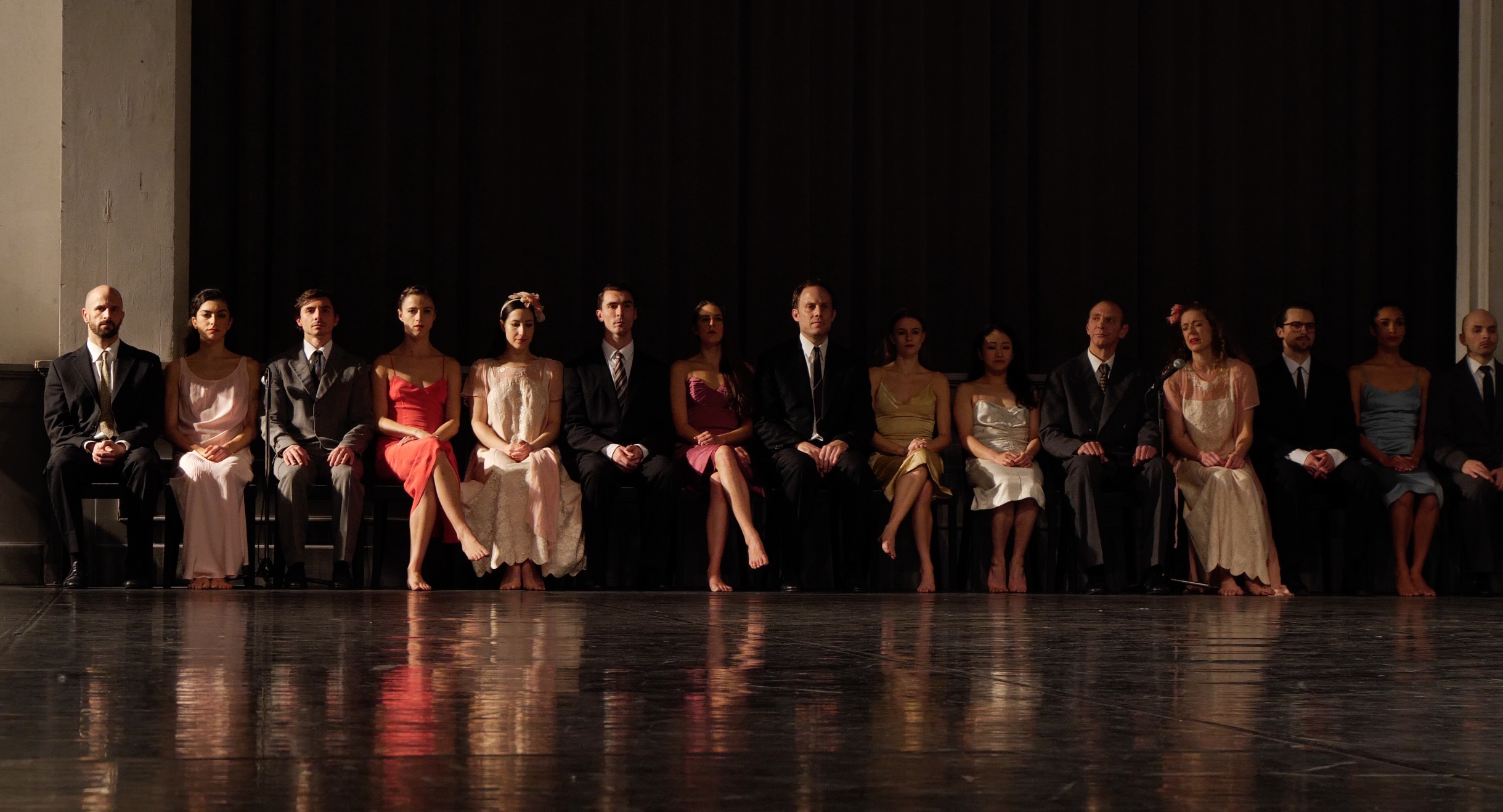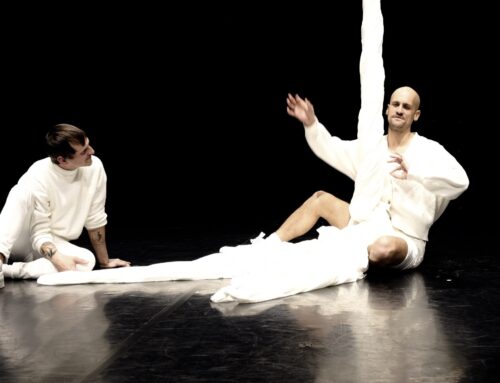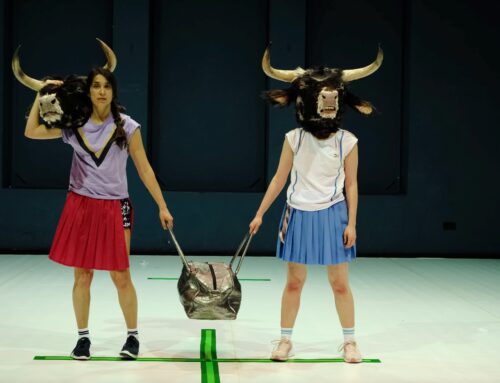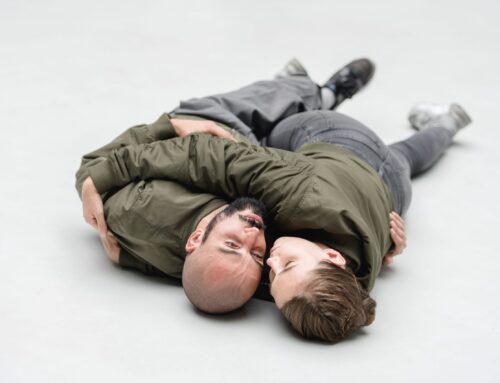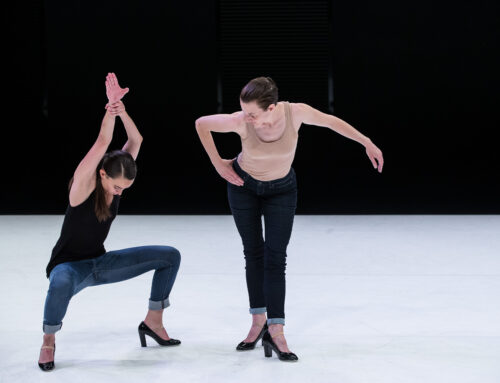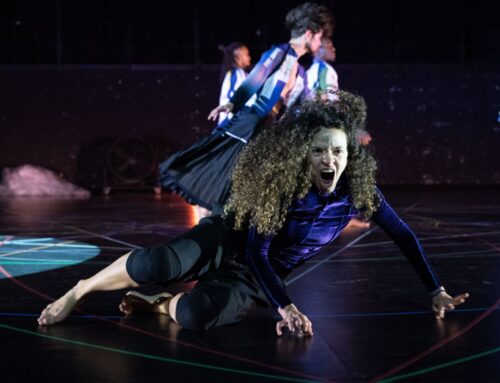50 Years of Tanztheater Wuppertal? A press conference
„We are slowly blowing out the candles…“
…depending on how you read it and how you feel about it, that doesn’t sound like a big bash for a round birthday that actually needs to be celebrated: 50 years of Tanztheater Wuppertal Pina Bausch!, …it sounds more like…. blowing out!
Report and commentary by Klaus Dilger
Ten years earlier, almost to the week, there was the press conference for the 2013/14 season and thus the 40th anniversary, in the presence of the then Minister Ute Schäfer and the State Secretary Bernd Neuendorf, who had an additional 700,000 euros in their luggage so that this quite extraordinary event could be duly celebrated in four cities in North Rhine-Westphalia and thus, as it felt, in the entire federal state. At that time with 104 events, consisting of fourteen productions by Pina Bausch and numerous guest companies of world renown, which were closely connected in friendship and aesthetics with the dance icon who had not only touched and changed their world.
Ten years ago, the (art) world perceived how Pina Bausch was appreciated for having managed to become a figure of identification with her art and a part of a society that had touched and influenced people, even those who in truth had perhaps never been able to experience one of her works in person, perhaps because the performances in Wuppertal were all sold out within a very short time, often to visitors from all over the world, or even because they could not afford to attend a performance. With her authentic, honest form of dance, the dance theatre she developed, Pina Bausch had become an icon of which people were and are proud, not only in Wuppertal and NRW; she was and is a cultural asset of national and international significance.
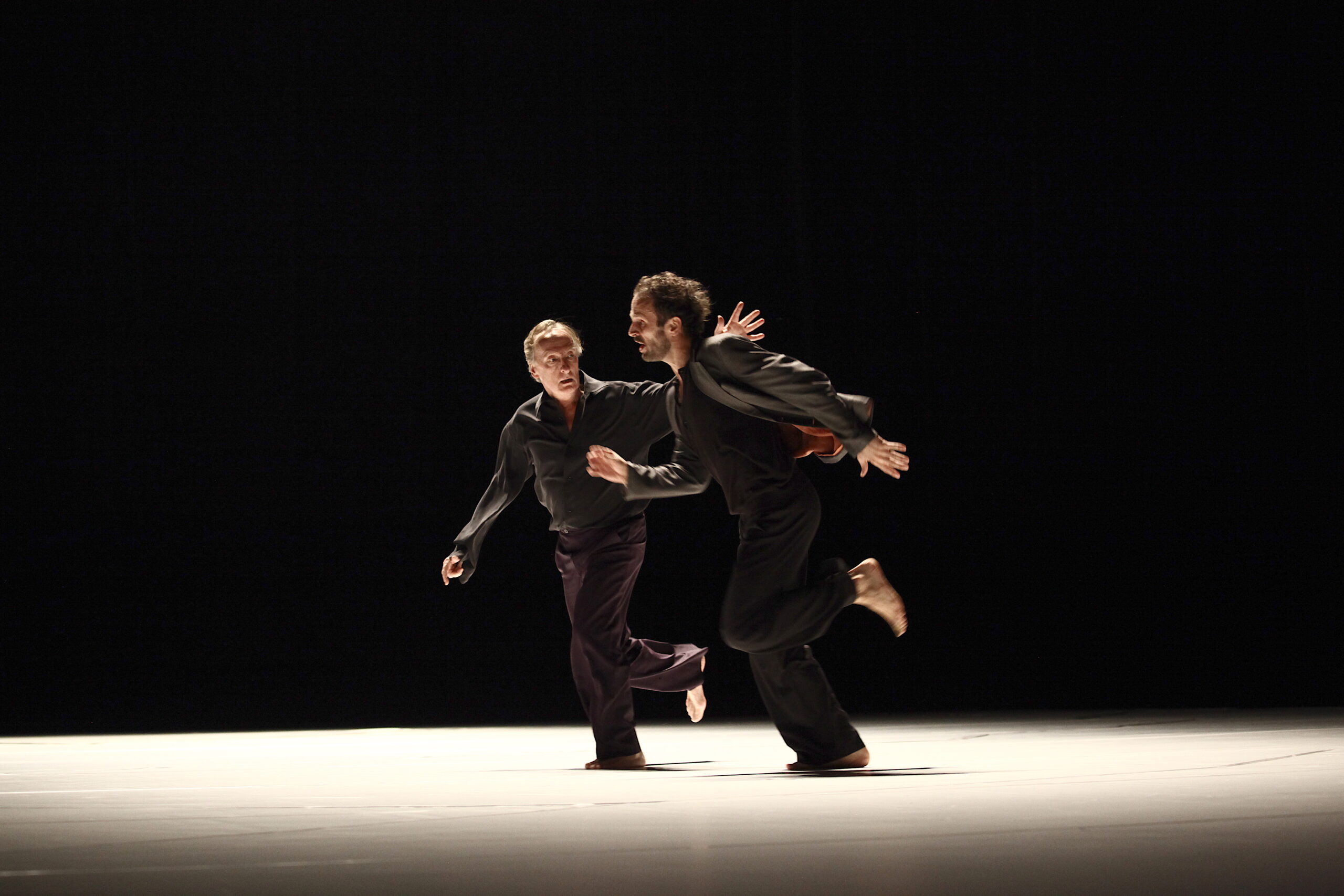
como-el-musguito_Pina-Bausch-©-Marcelle-Muenkel
This public appreciation was an all the more significant signal because Pina Bausch had met with little understanding in Germany and in Wuppertal in the early years and could hardly ever have lasted so long without the appreciation from abroad, especially France and later Italy and then the whole world.
Even if this rejection began to turn into the opposite in the late eighties and early nineties, this signal, for the first time after her passing in 2009, was still of great importance. A kind of „cultural international understanding“, also to strengthen their „icons“ and the position of art and culture in societies.
Ten years later, on the occasion of the fiftieth, would not such a signal have been expected all the more by our (intellectual and cultural) neighbouring countries throughout the world, and would not such a sign be more necessary than ever?
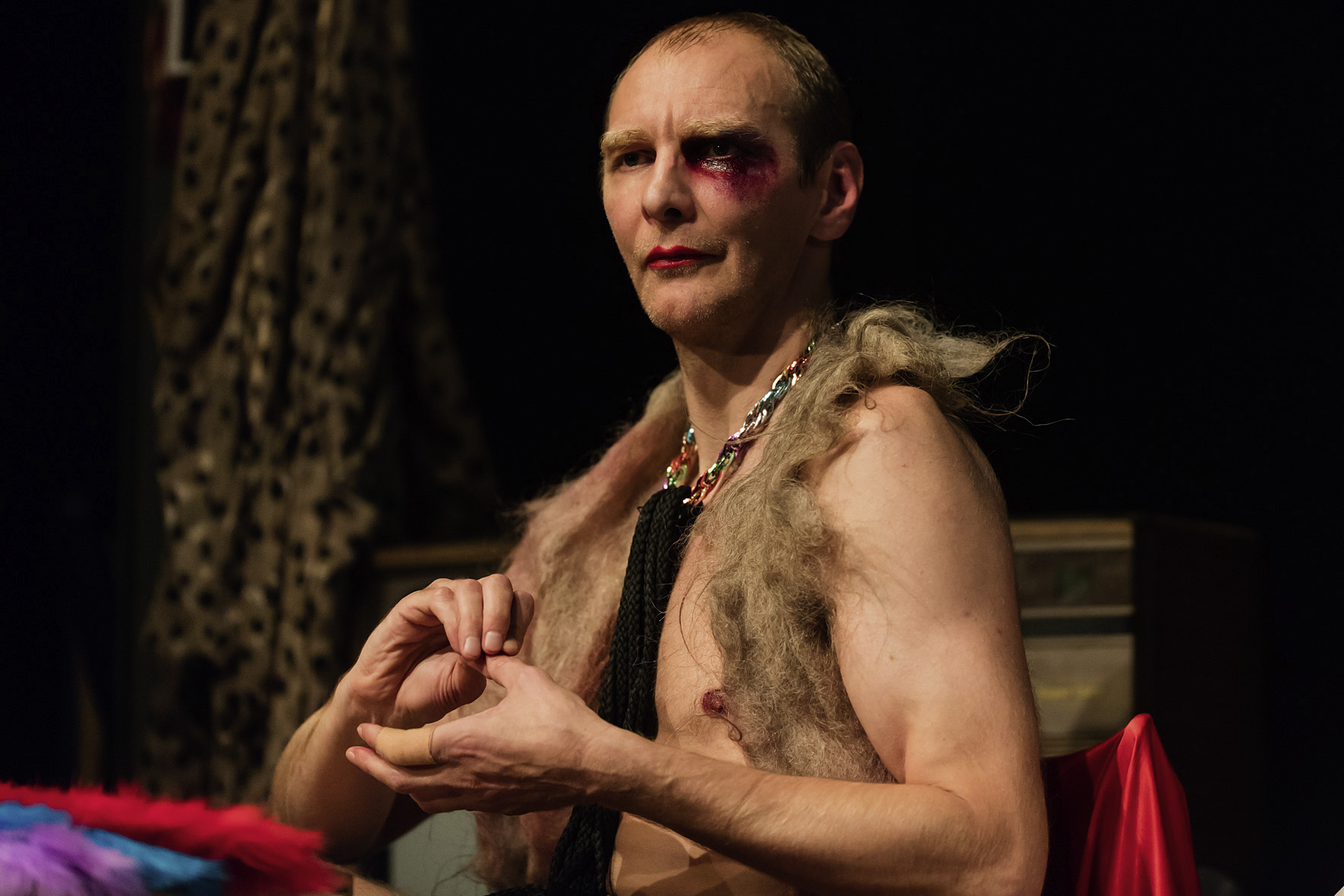
Palermo Palermo Ein Stück von Pina Bausch©meyer originals
Conscious decision…
„…that’s what I expected at first,“ Salomon Bausch, the director of the Pina Bausch Foundation, will later say from the audience, „… but now I’m glad that you didn’t fall into this trap, because it’s much more important that we can still celebrate my mother’s works in 70 and 80 years, and for that we need further development…“.
This weighty statement followed after Roger Christmann, the outgoing commercial director of the Tanztheater, had matter-of-factly explained that this had been a very conscious decision to place the transformation process of the ensemble with Boris Charmatz at the centre of his first self-designed season.
Analytical objectivity, even if one does not have to (and cannot) agree with the result, was appropriate, because the question about the comparison with the 40th anniversary alone caused tempers to flare on the podium among those who already saw the promised support from the federal and state governments for the construction of a „Pina Bausch Centre“ and the participation of NRW Minister Brandes in the architectural competition and the announcement of the winning designs (we reported) as a strong sign of solidarity.
Presumably Ina Brandes, unlike the sparse press representatives, was already aware that this was not going to be about the big „Tanztheater Wuppertal Pina Bausch – Jubiläum“ (Dance Theatre Wuppertal Pina Bausch – Anniversary).
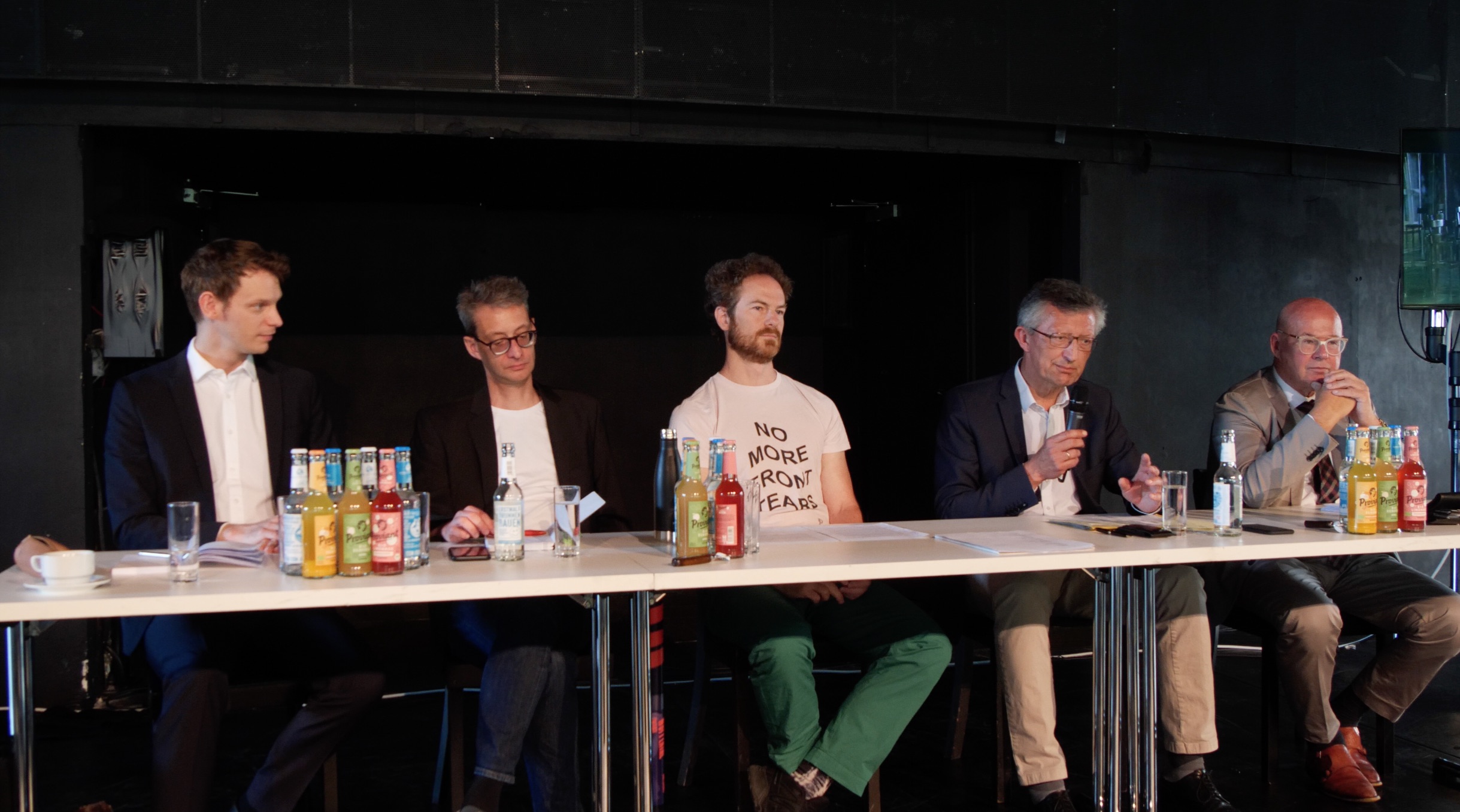
A podium and two screens…
The podium consisted of (from right to left) the chairman of the supervisory board of Pina Bausch gGmbH, Mr Rolf Jürgen Köster, the councillor for culture of the city of Wuppertal, Mr Matthias Nocke, Boris Charmatz, artistic director of [terrain] and, since the current season, also of Tanztheater Wuppertal Pina Bausch, next to Roger Christmann, outgoing commercial director and future senior advisor of the Tanztheater (new position?), and Daniel Siekhaus, his successor. The gentlemen were framed on the left and right by two large screens.
On these, films are shown in a continuous loop in which dancers from the Tanztheater Wuppertal DANCE well-known works by Pina Bausch, interspersed again and again with three different scenes of clusters of people crawling over each other through an undefined space, a naked-looking couple, a man and a woman rolling on top of each other, and a plateau with three levels on which a woman and two men move, each naked at the bottom and dressed in a white T-shirt at the top. At some point, the visitors to the press conference realise, or rather do not realise, that this is a depiction of what was probably previously declared to be a further development.

Liberté Cathedrale_Boris Charmatz©Copyright Martin Argyroglo
What became visible here was what we had repeatedly pointed out in our reviews of the so-called „Wundertal“ and „Palermo Palermo“: that there is a gigantic discrepancy between what the current dancers have presumably worked for all their lives, namely to experience Pina Bausch’s works, her art and mastery, and to dance and communicate them, and what it takes in terms of prerequisites to participate in pieces by Boris Charmatz.
This is not even meant to sound judgmental, alone, the situation is as simple as it is complicated: Pina Bausch’s works need this company, need sensitive and technically skilled dancers who are aware of all levels and how to bring them together, and who can call this up in their bodies, through their bodies and beyond.
What Boris Charmatz does, one doesn’t need those skills. It can be seen in the current casts and rehearsals that the individual dancers on stage no longer experience an echo, although it is only in the echo (also with the audience) that pieces and authenticity can emerge. The proving details would be for the specialist audience alone, but they are evident.
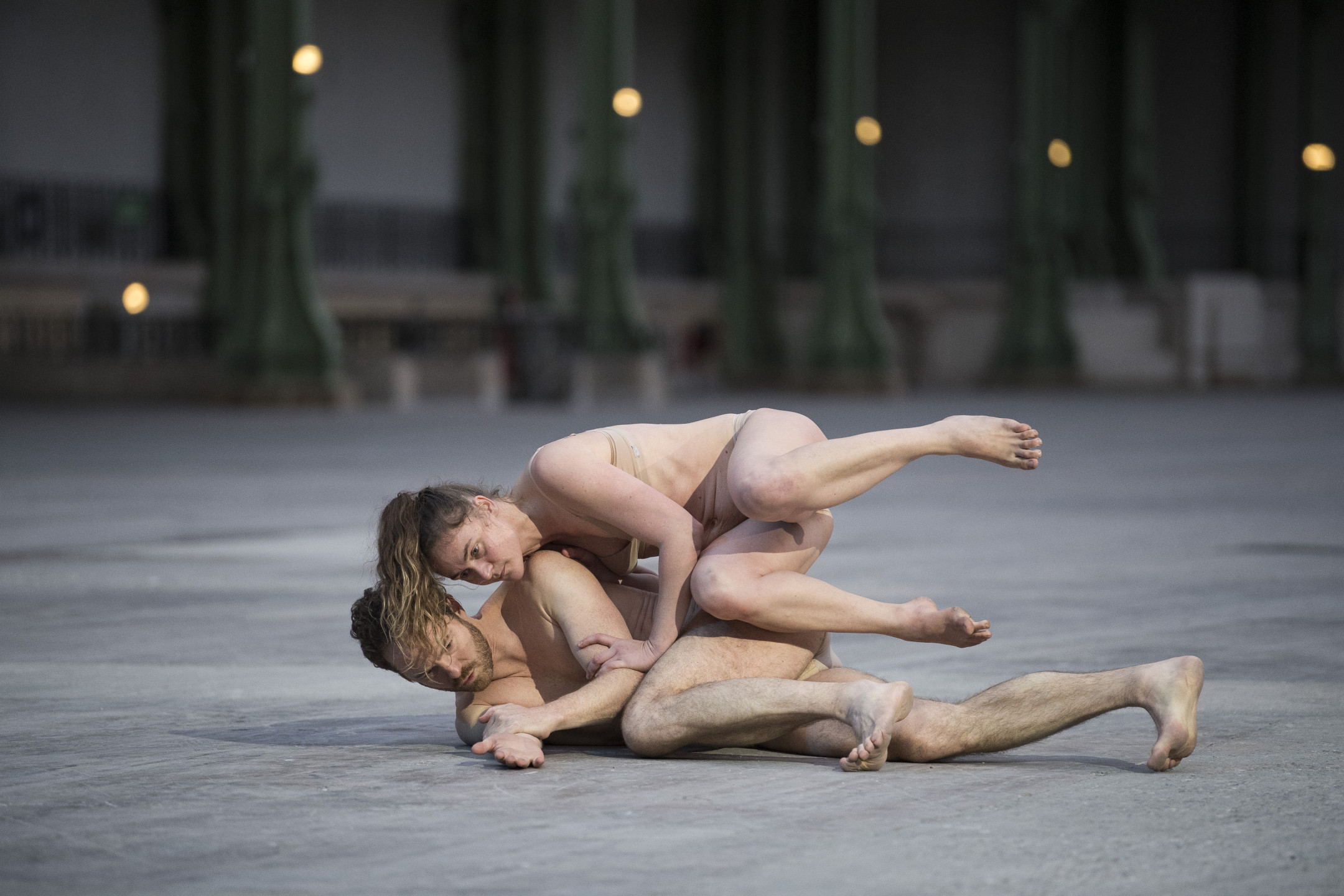
HERSES (Duo)_Boris Charmatz©webseite pina-bausch.de
So what is Salomon Bausch happy about? With this conceptual artist of non-danse, Boris Charmatz, this development is not in the least apparent. We have pointed this out several times in our reviews as well. And this does not even refer to the „interventions“ in Pina Bausch’s work that are to be feared, but only to the changes that result from new engagements and|or training methods.
Where was the media interest?
It is almost shameful that for such an event, hardly any international or even national or regional colleagues were present to report on it, to ask questions that require dance knowledge and expose the core of the respective concern.
Charmatz showed at the press conference that he has no answers to the significant questions about the future of Tanztheater Wuppertal Pina Bausch, whose DNA has indispensably become a multigenerational ensemble. Worse still, he may not even care with regard to his own pieces.
Politicians, who by their very nature may have little idea about the international dance scene (and don’t have to), but who know that they can ill afford another miscast as head of the Tanztheater Wuppertal, will not easily question Charmatz. On the contrary: questions are unpleasant for all those who were involved in giving Boris Charmatz responsibility for this (so far) unique ensemble for eight years
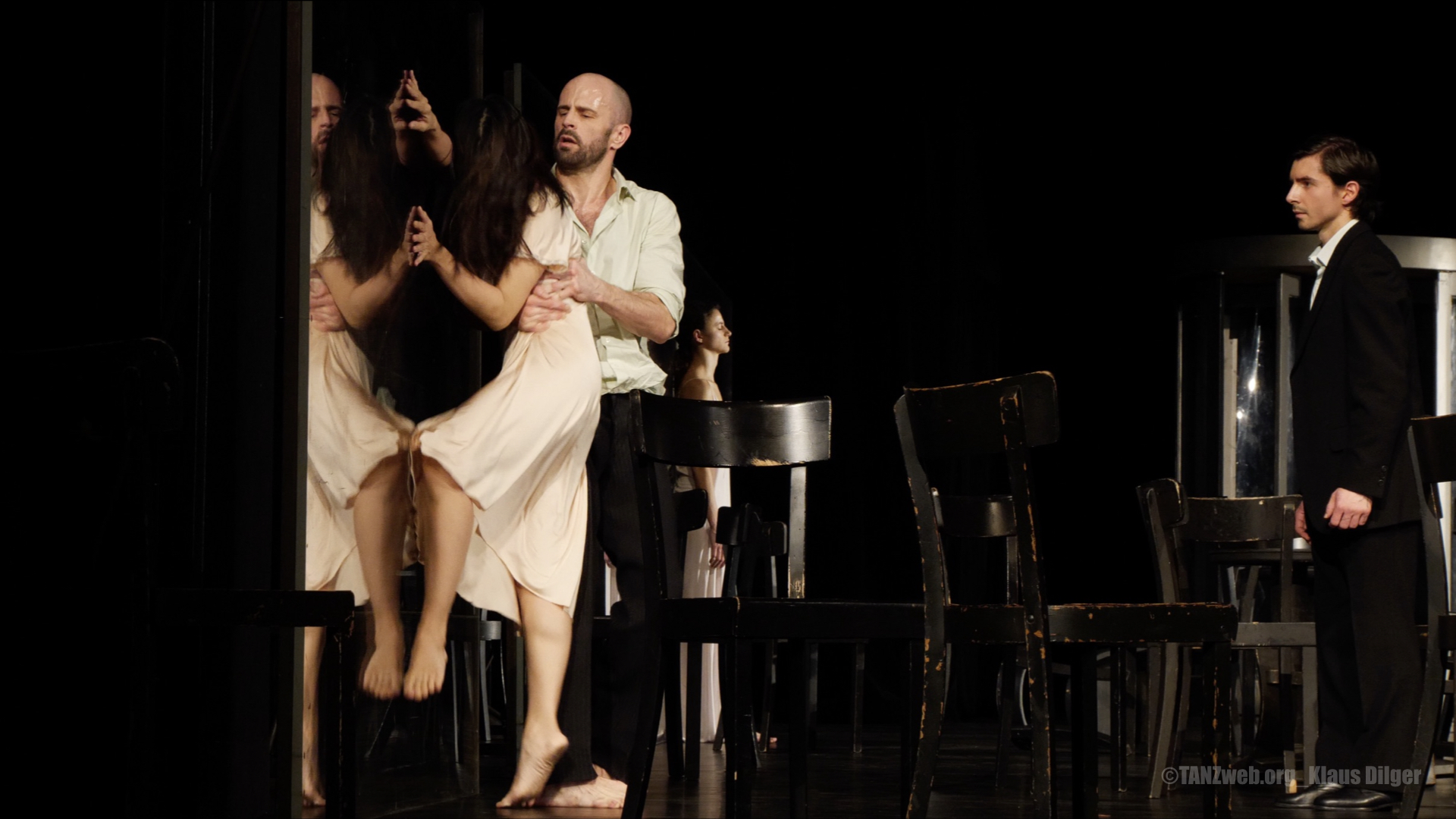
TRIPPLE-BILL-TTW_CAFE-MUeLLER_Pina-Bausch@TANZweb.org_Klaus-Dilger
No more echo…
It is and was completely indisputable that this ensemble urgently needs new creations and that this is what they wanted. It was also desirable that the direction be transferred to a choreographer again. The fact that this has now been given to Charmatz, whose own work has absolutely nothing in common with the work of Pina Bausch, has astonished and surprised many experts, especially in France, where the work of Pina Bausch has always been revered.
In Pina Bausch’s work, dance came into being through the people, the dancers, and these resulting works must be created anew over and over again, at every performance, by those who dance them, and must come to life again in all their levels and dimensions.
They must be able to create an „echo chamber“ among themselves (see above), in which the audience can immerse themselves and be included.
If this echo no longer arises, then it is probably in the rarer cases due to the work (even Pina Bausch did not succeed in everything equally well). The essence of art also lies in its timelessness; this also applies to the works of the dance theatre icon. Occasionally, one hears or has heard from self-appointed experts that Pina Bausch’s works are no longer „contemporary“ and need to be revised. Hmmmm…. If that were the case, they would not be art and there would be no reason to continue performing them.
Picasso said in 1937, „“It is my wish to remind you that I have always been convinced, and still am, that an artist who lives and deals with spiritual values cannot be indifferent in the face of a conflict in which the highest values of humanity and civilisation are at stake.““ This statement was prompted by his rethinking of the design of the commissioned „Spanish Pavilion“, after the destruction of the city of Guernica by an air raid. Instead of „The Painter and His Model“, „Guernica“ was created. From a temporal, now historical, occasion arose a work of art that stands above time. Would anyone think of wanting to „rework“ it?
Works of art have always inspired other artists to their own attempts, experiments and works. These processes can be exciting, but they are „quotations“ in their own right.
We would be happy to receive such „quotations“, also from Boris Charmatz, for he does not need to „paint over“ Pina Bausch’s works or use her name.

„Reworked“ Version of the Fresk of Jesus (Beast Jesus) by Cecilia Gimenez (Cecilia Giménez, a woman in her 80s, is known for her botched restoration of a 19th century “ecce homo” fresco of Jesus in Santuario de la Misericordia, a Roman Catholic church in Borja, near the city of Zaragoza.)
„We are slowly blowing out the candles…“,
„Tanztheater Wuppertal is celebrating a round birthday this year: 50 years!“ the new artistic director said at the press conference after all, and at the very end in the prefabricated press dossier about it. „We will celebrate this event extensively – in our own way! We will blow out the candles very slowly, but with a lot of emotion. In the course of the season, these performances will be complemented by additional events that will emerge over time. But we will begin in September with an existentially significant choreography (note: HIS) in a church built in the Brutalist style. I’M LOOKING FOR YOU“ he says and writes.
When Boris Charmatz says „we“, he is probably speaking of himself in the third person, because this press conference is primarily, almost exclusively even, about him: Boris Charmatz. – This at least should have become clear to all participants of the press conference!
This is also evident on the new website:
„TANZTHEATER WUPPERTAL PINA BAUSCH TERRAIN BORIS CHARMATZ“
… where you can now find in the „archive“ in the list of „pieces“, colourful but on a par with the works of Pina Bausch, presumably everything Boris Charmatz has ever worked on.
A novelty for the „first employee“ of a dance ensemble that programmatically bears the name of its founder in its title and whose works are the cause of the world fame that the company still enjoys. Some might also call this novelty pretentiousness.
„We blow out the candles slowly…“

Aatt-enen-tionon-La-Chaufferie-Saint-Denis

